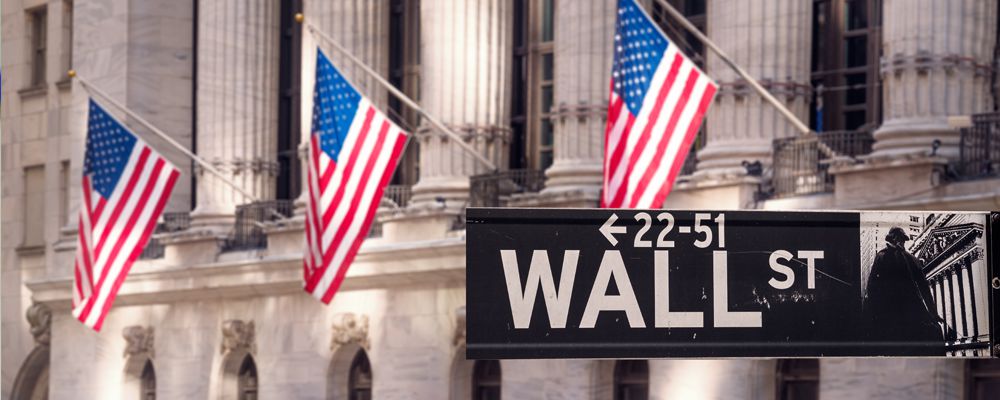Wall St has shaken off concerns of an imminent recession
- Friday, December 13, 2019
 It will not be a shock that the US economy is slowing down after 10 year of steady expansion. Despite this slowdown, most economists are not expecting a recession in the US, but instead are anticipating GDP growth of about 2% per annum. Recently published data has been more upbeat on the back of historically high employment levels, wage growth and strong consumer spending.
It will not be a shock that the US economy is slowing down after 10 year of steady expansion. Despite this slowdown, most economists are not expecting a recession in the US, but instead are anticipating GDP growth of about 2% per annum. Recently published data has been more upbeat on the back of historically high employment levels, wage growth and strong consumer spending.
During the first half of 2019, the US economy grew on a year-to-year basis by 3.1% in Q1 and 2% in Q2. At the same time, the US labour market remained strong with new job growth averaging 131,000 per month between August to October, 154,000 per month between May and July and 159,000 per month between February and April. The unemployment rate remains at 3.6%, the second lowest rate since 1969.
Household balance sheets have improved through a general reduction in personal debt, wage growth and greater levels of employment. While consumer spending has risen, business investment and exports have weakened. The strength of consumer finance is an important factor for confidence that the business cycle can continue for another year.
Inflation at the end of October was 1.8% with expectation of little change in the months ahead. This outlook has allowed the Fed to cut interest rates on three occasions this year. Interest rates now stand at 1.50% to 1.75%. These rate cuts have increased the availability of money but not yet enough to see a meaningful increase in US inflation. The housing market should further improve on the back of these three interest rate reductions. An expanding housing market has a positive knock-on effect to other sectors, not least the market for raw materials.
The Federal reserve’s rate cut has resulted in a new high in November for the S&P 500 index and the Nasdaq Index. This recent lift in the S&P 500 comes after corporate profits had fallen throughout the first half of the year and brokers were warning of further declines in corporate earnings. There had been concerns that the record US bull market was coming to an end only to be saved again by the Fed.
These peaks mean that Wall St has shaken off concerns of an imminent recession which were prompted by a US yield curve inversion and resulted in a heavy sell-off in the summer. Since the end of Q2, most S&P 500 companies have beaten their earnings expectations. This uplift in equity comes at a time when bond yields are exceptionally low. It is quite clear that the message that the bond market is giving is the opposite to that of the equity market with bond yields indicating negative growth ahead.
It would normally cost less to borrow money over a shorter period than a longer one and therefore a yield curve would normally slope upwards with longer dated bonds having higher yields than shorter dated ones. This natural yield slope inverted, or reversed, in both May and again in August suggesting that the US economy may be heading for a recession. The US bond market has a good track record at predicting a recession in the US economy. With only one exception in 1966, each time the US yield curve has inverted, the US has entered recession within 18 months. Analysts have been predicting a 40% likelihood of a recession as they also take into account other factors such as consumer spending, interest rates and employment rates.
Household balance sheets have improved through a general reduction in personal debt, wage growth and greater levels of employment.

Chris Davies
Chartered Financial AdviserChris is a Chartered Independent Financial Adviser and leads the investment team.
About Estate Capital
Financial Services
Our Contacts
7 Uplands Crescent,
Swansea, South Wales,
SA2 0PA.
Tel: 01792 477763
